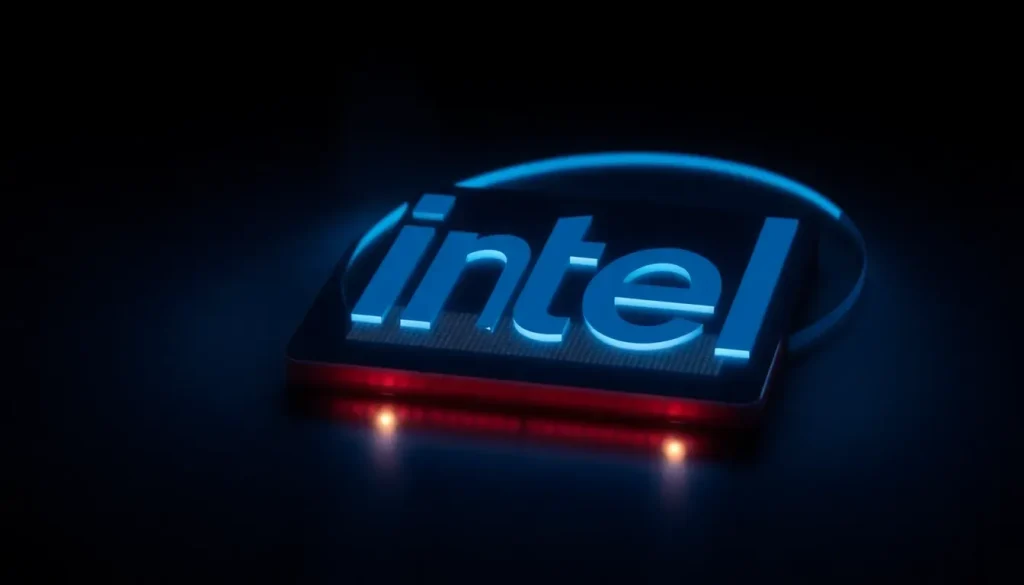Intel seeks partnership with TSMC to secure its future

In an ever-evolving technology landscape, Intel finds itself at a pivotal crossroads, striving to emerge from a prolonged crisis that has affected its market position and innovation capabilities. Under the leadership of CEO Lip-Bu Tan, the company is actively exploring strategic partnerships, including with key competitors like TSMC, the world's leading semiconductor manufacturer. This move signifies not only a desperate bid for survival but also a strategic realignment in the highly competitive semiconductor industry.
Recent reports from The Wall Street Journal reveal that Intel has initiated discussions with TSMC regarding a potential alliance or investment in semiconductor manufacturing. This conversation reportedly took place between Tan and TSMC's CEO C.C. Wei, highlighting Intel's proactive approach to forging vital collaborations.
While the formal nature of these discussions remains unclear, it follows closely on the heels of a separate meeting between Tan and Apple's CEO, Tim Cook, as reported by Bloomberg. The potential investment from Apple could mark a significant shift, especially considering the historical relationship between the two companies, which soured after Apple pivoted towards its proprietary Apple Silicon chips.
Intel's pursuit of an alliance with TSMC, the leading chip manufacturer
The notion of Intel seeking collaboration with TSMC is not particularly surprising, especially given recent developments in the industry. Just days ago, NVIDIA, a former rival, made headlines by announcing a substantial $5 billion investment in Intel. This partnership will integrate NVIDIA's GPUs into Intel's upcoming consumer chips and develop dedicated hardware for artificial intelligence servers.
Considering the profiles of both Intel and TSMC, a partnership could encompass various aspects, from co-manufacturing to joint research endeavors. However, specific details regarding the nature of this potential collaboration have yet to be disclosed.
According to WSJ, Intel's initiative to engage with semiconductor giants is not a recent development. The strategy had been in motion prior to the U.S. government's interest in acquiring a stake in Intel, aiming to bolster the company's recovery efforts. The urgency to establish new partnerships has heightened following this government intervention.
Should Intel and TSMC formalize their alliance, it could send shockwaves throughout the semiconductor market. Both companies rank among the top three chip manufacturers globally, along with Samsung, making any collaboration between them a monumental shift in industry dynamics.
What is driving Intel's need for collaboration?
Intel's current predicament stems from a combination of strategic missteps and fierce competition. The company, once a dominant player in the semiconductor industry, has struggled to keep pace with the rapid advancements made by competitors in recent years. The need for collaboration arises from several critical factors:
- Technological Lag: Intel has faced delays in transitioning to advanced manufacturing processes, which has hindered its ability to compete effectively.
- Market Pressure: Competitors like AMD and NVIDIA have gained significant market share through innovative products, leaving Intel at a disadvantage.
- Financial Strain: The company has experienced declining revenues and profits, necessitating strategic investments and partnerships to revive its fortunes.
- Government Support: With rising geopolitical tensions, especially concerning technology and manufacturing, Intel aims to align itself with other major players to secure its position.
- Shifting Consumer Demands: The demand for more powerful, energy-efficient chips in sectors such as AI and machine learning is changing, and Intel needs to adapt quickly.
The implications of a potential Intel-TSMC alliance
A strategic partnership between Intel and TSMC could result in multiple industry-transforming implications, including:
- Enhanced Manufacturing Capabilities: Collaborating with TSMC could allow Intel to leverage advanced manufacturing technologies and processes, accelerating its product development timelines.
- Increased Competitive Edge: A partnership could bolster Intel's position in emerging markets such as AI and 5G, where TSMC already has significant expertise.
- Shared Risks: By pooling resources and expertise, both companies could mitigate risks associated with high-cost semiconductor manufacturing.
- Greater Innovation: Joint research initiatives might lead to breakthroughs in chip design and manufacturing techniques, benefiting both firms.
- Market Stability: A partnership could foster more stability in the semiconductor market by aligning two of its largest players, potentially stabilizing prices and supply chains.
Who owns TSMC and its role in the semiconductor industry
TSMC, or Taiwan Semiconductor Manufacturing Company, is a leading semiconductor foundry that has revolutionized the industry with its cutting-edge manufacturing capabilities. Founded in 1987, TSMC operates independently and is publicly traded on the Taiwan Stock Exchange. The company is primarily owned by institutional investors and individual shareholders, with its largest stakeholders including:
- Government of Taiwan: Holds a significant stake as part of its national strategy to promote the semiconductor industry.
- International Investors: Various global institutional investors, including major asset management firms.
- Strategic Partnerships: Collaborations with tech giants like Apple, NVIDIA, and Qualcomm, further solidifying its market position.
TSMC has become synonymous with innovation, playing a critical role in the supply chains of many technology companies worldwide. Its ability to produce advanced chips at scale makes it a linchpin in the tech industry, underlining the strategic importance of any potential collaboration with Intel.
For further insight into the dynamics between these two tech giants, check this video:
The future of Intel amidst industry challenges
As Intel navigates its path forward, the pressure to innovate and adapt has never been more pronounced. The company's strategy of seeking alliances is reflective of a broader trend in the industry where collaboration often trumps competition, particularly in the face of rapid technological advancements.
Intel's ongoing restructuring, marked by significant layoffs and the cancellation of its plans to build a large semiconductor factory in Germany, underscores its urgency to return to profitability. Analysts suggest that without decisive action, Intel risks losing its status as a market leader permanently.
While the prospect of a partnership with TSMC is promising, Intel must also focus on internal reforms and innovation to reclaim its competitive edge. The semiconductor industry is poised for a transformative era, and Intel's ability to adapt to these changes will determine its future trajectory in a highly competitive marketplace.

Leave a Reply